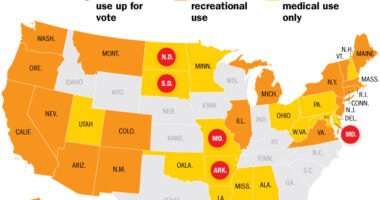A new study says regular antidepressant treatment may benefit people with diabetes and depression.
Though diabetes does not directly cause depression, managing this long-term condition can be exhausting and overwhelming, which can trigger feelings of sadness. Diabetes patients are 2 to 3 times more likely to have depression than people without diabetes, according to the US Centers for Disease Control and Prevention (CDC). When you depressed, your risk goes up for diabetes complications including heart and kidney disease, stroke, eye, foot problems, as well as risk of death. This is due to stress, body weight changes, and lack of exercise.
Regular antidepressant treatment could lower risk of serious diabetes complications and death in people with diabetes and depression, suggested a new study.
Published in the Endocrine Society’s Journal of Clinical Endocrinology & Metabolism, the study was conducted by a research team from the National Taiwan University and the China Medical University in Taiwan. They examined the medical data of 36,276 patients with depression and diabetes and found that regular antidepressant treatment was associated with a lower risk of death and heart disease.
The earlier depression is treated, the better for your diabetes
According to the US CDC, only 25 to 50 per cent of people with diabetes who have depression get diagnosed and treated. Without treatment, depression often gets worse. “The earlier depression is treated, the better for you, your quality of life, and your diabetes,” said the health agency.
Here are some symptoms of depression to watch out for:
- Feeling sad or empty often and for long periods of time.
- Losing interest in activities you used to enjoy.
- Not wanting to see anyone.
- Overeating or not wanting to eat at all.
- Not being able to sleep or sleeping too much.
- Having trouble concentrating or making decisions.
- Feeling tired more often than not.
- Feeling hopeless, irritable, anxious, or guilty
- Having aches or pains, headaches, cramps, or digestive problems
- Having thoughts of suicide or death
If you experience one or more of these symptoms for longer than two weeks, then get in touch with your doctor right away for help getting treatment.
Know how depression affect diabetes
A few depressive symptoms can directly affect your diabetes management, such as:
If you depressed, you may not want to do anything or see anyone. This could stop you from taking your medication, testing your blood sugars, seeing your doctor and ignore other health problems. All of these could lead to complications.
If you feel tired more often, you’re likely to skip exercising, which can help your diabetes management.
Some people eat more when they are depressed. This might make their blood sugars rise. Not eating enough, on the other hand, might lead to a hypo if you take insulin.
People with diabetes are also 20% more likely than those without diabetes to have anxiety, feelings of worry, fear, or being on edge at some point in their life according to CDC. To lower your anxiety and lift your mood, the health agency suggests getting active, doing some relaxation exercises, like meditation or yoga, limiting alcohol and caffeine, eating healthy food, and getting enough sleep.
This post first appeared on The Health Site






